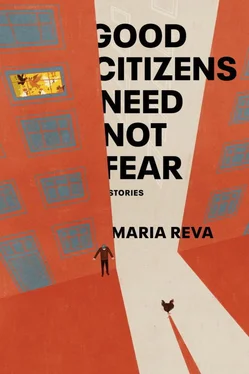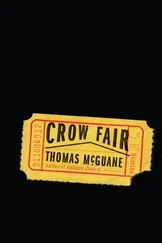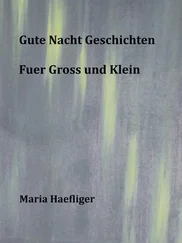A few minutes later I floated across the fence of a small dacha, toward a shack sagging on stilts. On the windowsill stood a rusted trophy of a fencer in fighting stance, and from its rapier hung a rag and sponge. When no response came from an oared knock on the door, I rowed to the back of the shack. There sat Konstantyn Illych and, presumably, his wife, Milena Markivna, both of them cross-legged atop a wooden table, playing cards. The tabletop rose just above water level, giving the impression that the couple was stranded on a raft at sea. The poet’s arms and shoulders were small, like a boy’s, but his head was disproportionately large, blockish. I found it difficult to imagine the head strapped into a fencing mask, but that is beside the point.
“Konstantyn Illych?” I called out.
The poet kept his eyes on the fan of cards in his hands. “Who’s asking?”
I rowed closer. The wood of my boat tapped the wood of the table. “My name is Mikhail Ivanovich. Pleased to meet you.”
Konstantyn Illych did not return my politesse, did not even take the toothpick out of his mouth to say, “You here for electric? We paid up last week.”
His wife placed a four of spades on the table. Her thick dark hair hung over her face.
I told Konstantyn Illych who I was and that the agency had received reports of how he had publicly disseminated wrongful evaluations of the leaders of the Communist Party and Soviet society at large, and that I was here to have a conversation with him. Konstantyn Illych set his cards facedown on the table and said in a level tone, “All right, let’s have a conversation.”
I had conducted dozens of these conversations before and always began from a friendly place, as if we were two regular people—pals, even—just chatting.
“Quite the flood,” I remarked.
“Yes,” confirmed Konstantyn Illych, “the flood.”
“I’ll bet the children love it here.”
“No children.”
Usually there were children. I stretched my legs out in the rowboat, which upset its balance, and jerked them back.
“No parents, grandparents, aunts, or uncles either,” said Milena Markivna. Her upper lip curled—the beginning of a sneer, as if to say, But you already knew that, didn’t you?
There had indeed been mention in the file of a mass reprimand of Milena Markivna’s relatives in the fifties, but amid all the other facts about all the other residents of Kirovka, with all their sordid family histories, the detail had slipped my mind. Still, did the woman need to dampen the spirit of the conversation?
Konstantyn Illych broke the silence. “So what’s the joke?”
“I hadn’t made a joke,” I said.
“No, the joke I supposedly told about the Party.”
Already he was incriminating himself. “The term I used was ‘wrongful evaluation,’ but thank you for specifying the offense, Konstantyn Illych.”
“You’re welcome,” he said, unexpectedly. “What was it?”
“I cannot repeat the joke.” I admit I had searched Konstantyn Illych’s file for it, but one of the typists had already redacted the words.
“You can’t repeat the joke you’re accusing me of telling?”
“Correct.” Then, before I could stop myself: “Perhaps you could repeat the joke, and I’ll confirm whether or not it’s the one.”
Konstantyn Illych narrowed his eyes, but said nothing.
“We aren’t moving any closer to a solution, Konstantyn Illych.”
“Tell me the problem first,” he said.
A brown leaf, curled into the shape of a robed figurine, floated by Milena Markivna’s foot. She pressed the leaf into the murky water with her thumb before turning to her husband. “Just say sorry and be done with it.”
I thanked her for her intuition—an apology was precisely what was in order, in the form of a letter within thirty days. Milena Markivna advised me not to thank her since she hadn’t done anything to help me; in fact, she hated officers like me and it was because of officers like me that she had grown up alone in this world, but at least she had nothing to lose and could do anything she wanted to: she could spit in my face if she wanted to. This, I did not recommend.
Konstantyn Illych was tapping his fingernails on the table. “I’m not putting anything in writing.”
It is usually at this point in the conversation, when the written word comes up, that the perpetrator becomes most uncomfortable, begins to wriggle. Few people grasp the simple logic of the situation: once a transgression occurs and a case file opens, the case file triggers a response—in this case, a letter of apology. One document exposes the problem, the second resolves it. One cannot function without the other, just as a bolt cannot function without a nut and a nut cannot function without a bolt. And so I told Konstantyn Illych, “I’m afraid you don’t have a choice.”
He reached for the small rectangular bulge in his breast pocket. “Ever read my poetry?”
I expected him to retrieve a booklet of poems and to read from it. Dread came over me; I had never been one to understand verse. Fortunately he produced a packet of cigarettes instead.
“Come to my next reading,” he said. “You’ll see I’m as ideologically pure as a newborn. Then we’ll talk about the letter.”
—
Normally I had a letter of apology written and signed well under the thirty-day deadline. I took pride in my celerity. Even the most stubborn perpetrators succumbed when threatened with loss of employment or arrest. The latter, however, was a last resort. The goal these days was to reeducate without arrest because the Party was magnanimous and forgiving; furthermore, prisons could no longer accommodate every citizen who uttered a joke.
In Konstantyn Illych’s case, next came gentle intimidation. If Konstantyn Illych stood in line for sausage, I stood five spots behind him. If Konstantyn Illych took a rest on a park bench, I sat three benches over. He pretended not to see me, but I knew he did: He walked too fast, tripping on uneven pavement; bills and coins slipped from his fingers regularly. His head jerked right and left to make sure he never found himself alone on the street. He needn’t have worried—there was always the odd pedestrian around—and anyway, I did not intend to physically harm or abduct Konstantyn Illych, though that would have been simpler for both of us. My older colleagues often lamented the loss of simpler times.
Four days passed without a word exchanged between us.
On the fifth day, I attended Konstantyn Illych’s poetry reading at the Kirovka Cultural Club. I took a seat in the front row of the lectorium, so close to the stage I could see the poet’s toes agitate inside his leather shoes. In the dim light, I was able to transcribe some of his poetry:
Helical gears, cluster gears, rack gears,
bevel and miter gears, worm gears, spur gears,
ratchet and pawl gears, internal spur gears,
grind my body
meat grinder
grinds
gr gr grrr
ah ah ah
aah aah aah
ah haaaaaah!
And also:
The bear
bares his flesh
skinless, bears the burden
of the air wooooooooooooooosh
And also:
Dewy forget-me-not
not me forgets.
Stomp.
I cannot guarantee I transcribed the onomatopoeic bits with accuracy; Konstantyn Illych’s reading gave no indication of the number of a’ s and o’ s, et cetera.
At the end of the reading the poet placed his pages at his feet, unbuttoned his faded blue blazer, addressed the audience: “Time for some trivia. I’ll recite a poem and one of you will guess who wrote it. Get it right and everyone here will admire you, get it wrong and you’ll be eternally shamed.” A few people laughed.
Читать дальше












